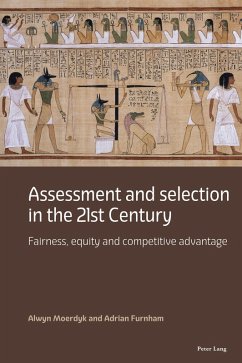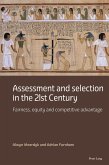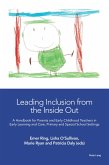This book is about the assessment of people in the workplace and examines what assessment is and the various forms it takes and how these principles and practices can be applied to improve job satisfaction, productivity and the fairness with which organisational objectives are achieved.
Section l examines some of the background and social issues that are shaping the assessment enterprise and the view that management in general and psychological assessment is part of the «neo-liberal assault on the world and an expression of colonial hegemony». Psychological assessment techniques and methods are increasingly being seen by some as biased against certain groups. The nature of measurement and assessment are evaluated and the basic principles of drawing up a psychological measuring instrument, as well as the history of assessment in the workplace, are outlined.
Section II examines basic psychometric theory, including how assessment test scores are interpreted, and combined to yield a single pass/fail, accept/reject or go/no go decision. The issues of reliability (or consistency) and those of validity, i.e., the extent to which a measure measures what it claims to measure, are examined. In Chapter 7, the concepts of fairness and equity are outlined, especially gender and cultural equity that are so important in many parts of the world today.
Section III examines how assessment principles are applied in organizations (Chapter 8) and with respect to Intelligence (Chapter 9), Personality (Chapter 10), Competencies (Chapter 11), Honesty and Integrity (Chapter 12), Interviewing (Chapter 13) and Assessment Centres (Chapter 14). The final section pulls all the threads together and asks What next?
Section l examines some of the background and social issues that are shaping the assessment enterprise and the view that management in general and psychological assessment is part of the «neo-liberal assault on the world and an expression of colonial hegemony». Psychological assessment techniques and methods are increasingly being seen by some as biased against certain groups. The nature of measurement and assessment are evaluated and the basic principles of drawing up a psychological measuring instrument, as well as the history of assessment in the workplace, are outlined.
Section II examines basic psychometric theory, including how assessment test scores are interpreted, and combined to yield a single pass/fail, accept/reject or go/no go decision. The issues of reliability (or consistency) and those of validity, i.e., the extent to which a measure measures what it claims to measure, are examined. In Chapter 7, the concepts of fairness and equity are outlined, especially gender and cultural equity that are so important in many parts of the world today.
Section III examines how assessment principles are applied in organizations (Chapter 8) and with respect to Intelligence (Chapter 9), Personality (Chapter 10), Competencies (Chapter 11), Honesty and Integrity (Chapter 12), Interviewing (Chapter 13) and Assessment Centres (Chapter 14). The final section pulls all the threads together and asks What next?
Dieser Download kann aus rechtlichen Gründen nur mit Rechnungsadresse in A, D ausgeliefert werden.









